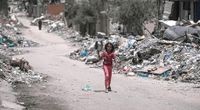On May 7, 2025, Dutch Prime Minister Dick Schoof expressed grave concerns regarding Israel's plans to invade and occupy the entire Gaza Strip and forcibly relocate the Palestinian population. During a press conference, Schoof described these plans as "worrying," emphasizing that they could have "far-reaching humanitarian consequences." The Prime Minister highlighted the plight of Israeli hostages in Gaza alongside the dire situation of Palestinians who have been deprived of aid for weeks amid ongoing bombings.
In a related development, Foreign Minister Caspar Veldkamp has formally requested the European Union to investigate whether Israel is violating the EU-Israel Association Agreement. This request comes in light of Israel's blockade of humanitarian aid to Gaza, which Veldkamp argues contravenes Article 2 of the agreement that mandates respect for human rights and democratic principles.
Israeli Prime Minister Benjamin Netanyahu announced an "intensive military operation" aimed at occupying the entire coastal strip of Gaza, which he claims will involve the relocation of its population. Schoof's comments reflect a growing unease within the Dutch government regarding Israel's military actions and their humanitarian implications.
During the press conference, Schoof reiterated the importance of Israel adhering to international law, stating, "Israel must adhere to international law." Belgian Prime Minister Bart De Wever, who joined Schoof, described the situation in Gaza as nearly unbearable, citing images of starving children that elicit a visceral human reaction: "That this has to stop."
Veldkamp's letter to EU foreign policy chief Kaja Kallas outlines his concerns about Israel's compliance with the treaty, particularly in light of the ongoing blockade that has left Gaza without humanitarian aid or electricity for weeks. He expressed skepticism regarding Israel's newly announced system for distributing aid, stating, "Although many details are still unknown, this system does not seem to be in line with the humanitarian principles of neutrality, impartiality, and independence."
Furthermore, Veldkamp indicated that he would not support the extension of the EU-Israel Action Plan, which facilitates cooperation between the EU and Israel, until the investigation into Israel's adherence to the treaty is complete. The Dutch government has been gradually increasing pressure on Israel while still opposing the notion of sanctions, reflecting a divided stance among coalition partners. The PVV and BBB parties strongly support Israel, while the VVD and NSC have adopted a more critical approach.
As of April 20, 2025, the humanitarian crisis in Gaza has escalated dramatically, with reports indicating that Israeli military actions have resulted in at least 51,157 deaths, including 17,400 children, according to Al Jazeera, which cited figures from the Palestinian Ministry of Health. Additionally, over 116,724 individuals have sustained injuries, and thousands are presumed dead beneath the rubble. The Gaza Government Media Office reported that around 290,000 children are "on the brink of death" from starvation.
Veldkamp has been vocal about the need for a thorough investigation into Israel's actions, stating, "The blockade contradicts international humanitarian law. You have the right to defend yourself, but the proportions seem to have completely gone awry. This is truly a line in the sand." He emphasized the necessity for a broader discussion and reflection on the relationship between the Netherlands and Israel.
In his correspondence, Veldkamp also called for Hamas to release all hostages immediately, asserting that there is no future for Hamas in any governing structure of Gaza. This reflects a shift in the Dutch government's rhetoric, as Veldkamp has previously only expressed concerns without calling for concrete actions against Israel's military strategy.
The Dutch parliament has been increasingly supportive of a more assertive stance towards Israel. In March, a majority voted in favor of a motion to investigate the treaty between Israel and the EU. A month prior, five major aid organizations urged the Dutch government to take more decisive actions to influence Israel's course of action.
As Veldkamp prepares for an informal meeting of EU ministers in Warsaw, he is expected to discuss the new position of the Netherlands regarding Israel's military actions in Gaza. The pressure on the Dutch government to respond to the humanitarian crisis has intensified, with calls for a more robust diplomatic approach.
In response to the government's shift in tone, PVV leader Geert Wilders criticized Veldkamp, labeling him a "weak minister" for siding with anti-Israel demonstrators. Veldkamp, however, defended his position, indicating that the government speaks with one voice on the matter of Israel.
The situation in Gaza remains a focal point of international concern, with humanitarian organizations warning of a catastrophic outcome if the blockade continues. The Netherlands' call for an EU investigation into Israel's compliance with human rights obligations marks a significant development in the ongoing discourse surrounding the Israeli-Palestinian conflict.
As the humanitarian crisis deepens, the international community watches closely, hoping for a resolution that prioritizes the welfare of civilians caught in the crossfire. The Dutch government's actions may influence broader European responses to the ongoing conflict and set a precedent for future engagements with Israel.






